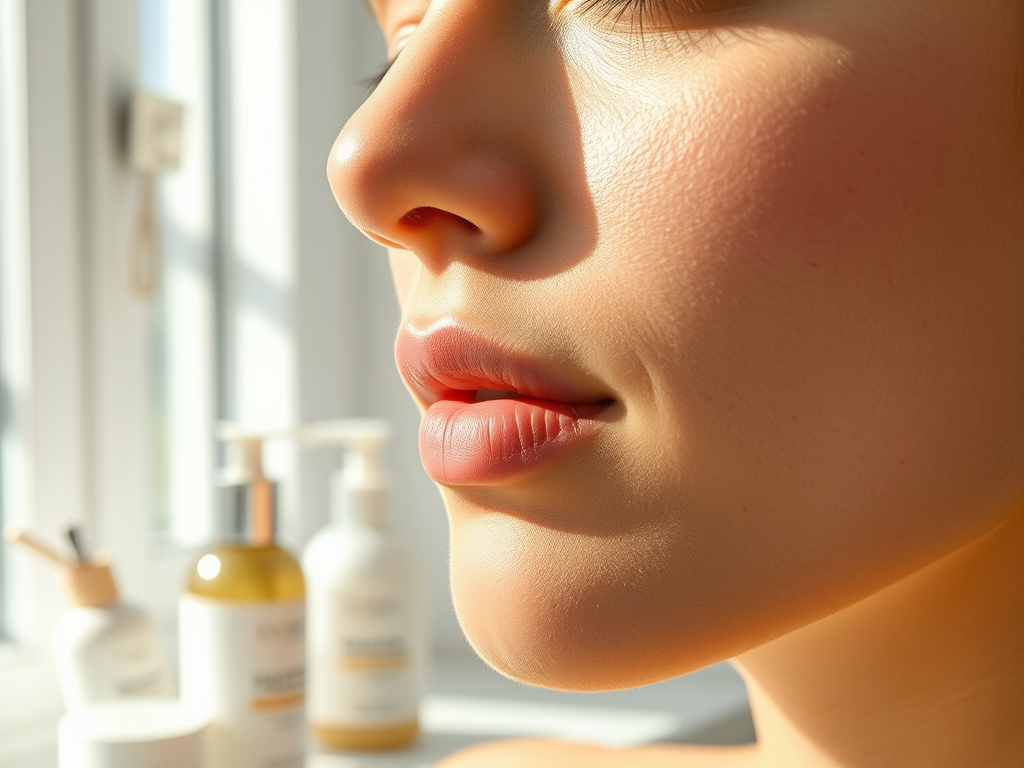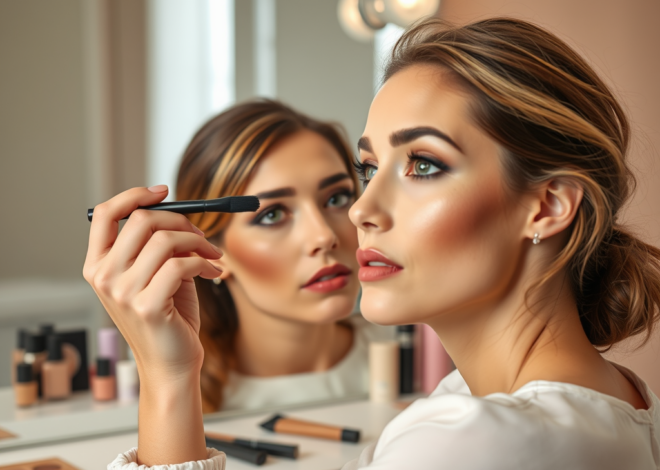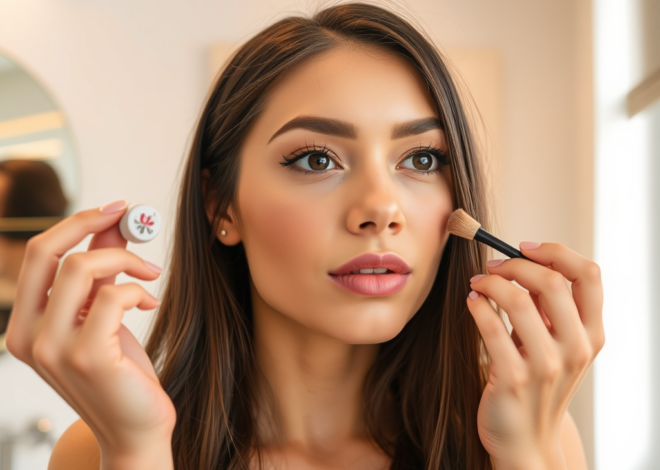
How Sleep Affects the Smoothness of Your Skin
Sleep is often undervalued in our fast-paced lives, yet it holds significant power over our physical appearance, particularly our skin. The quest for smooth, radiant skin can sometimes feel like an uphill battle fought against countless products, treatments, and routines. However, the answer may lie in something as simple, yet profound, as the quality of our sleep. Many don’t realize how deeply their skin health is intertwined with their sleep patterns. A lack of restorative sleep can manifest in various ways, from the emergence of fine lines to an uneven complexion. As we delve into this topic, you’ll discover that prioritizing a good night’s sleep can lead to visibly smoother skin and a healthier appearance overall.
Understanding the Connection Between Sleep and Skin Health

The relationship between sleep and skin health is both intriguing and essential. During the night, the body engages in vital restorative processes that are pivotal for skin rejuvenation. When a person sleeps, their skin gets the chance to repair itself from daily damage incurred from environmental factors. Furthermore, sleep enhances blood circulation, which nourishes skin cells and promotes a more vibrant complexion. Insufficient sleep, on the other hand, can lead to oxidative stress, a condition characterized by the production of free radicals that tail off the skin’s youthful glow. Ultimately, the quality and quantity of sleep play a crucial role in maintaining skin’s natural smoothness.
The Science Behind Sleep and Skin Regeneration

There’s compelling science behind the idea that sleep is essential for skin health. Collagen production, for instance, dramatically increases while you sleep, particularly during deep sleep phases. Nitric oxide is also released during this time, promoting better blood flow and aiding in cellular repair. Inadequate sleep, alternatively, has adverse effects, leading to accelerated skin aging and increased visibility of wrinkles. Let’s summarize the key hormones involved in skin renewal during sleep:
| Hormone | Function |
|---|---|
| Growth Hormone | Stimulates collagen production and skin repair |
| Melatonin | Regulates sleep-wake cycles and combats oxidative stress |
| Cortisol | Increased levels over time can lead to skin issues |
Deep sleep must not be overlooked. This critical stage of sleep, known for its restorative properties, promotes cellular regeneration. It is during this phase that the body works tirelessly to repair damaged cells and synthesize collagen, resulting in a supple and firm appearance. Some studies even suggest that individuals who experience higher quality sleep have a reduced rate of skin aging compared to their sleep-deprived counterparts. With this knowledge in hand, we can appreciate the integral part sleep has on what we often consider our ‘outer’ best—our skin.
Effects of Sleep Deprivation on Skin
Sleep deprivation does not merely leave you groggy; it can have profound consequences on your skin’s health and texture. Individuals experiencing chronic sleep loss may suffer from an increase in acne breakouts, dryness, and the visibility of fine lines. Studies show that those lacking quality sleep also exhibit duller skin, which can exacerbate the appearance of dark circles under the eyes. When deprived of sufficient rest, the body produces higher levels of the stress hormone cortisol, which can lead to additional skin conditions. This cascading effect makes it crucial to identify and combat sleep deprivation to protect our skin.
When sleep is compromised, the surge of cortisol isn’t just a buzzword; it leads to tangible skin consequences. This hormone enhances oil production in the skin, leading to clogged pores and potential breakouts. Elevated cortisol levels are also linked to inflammation, which can manifest as redness or sensitivity. All these elements underscore the importance of healthy sleep patterns as the first defense against skin issues. The relationship between stress, poor sleep, and skin health is cyclical and reinforces the need for self-care practices.
Lifestyle Factors that Impact Sleep Quality
Improving skin smoothness requires a holistic approach that encompasses not only sleep duration but also the quality of sleep. Consider these lifestyle factors that significantly influence your ability to achieve restful sleep:
- Consistent sleep schedule: Going to bed and waking at the same time daily can enhance your body’s natural rhythm.
- Optimizing your sleep environment: A peaceful room can facilitate better sleep.
- Limiting screen time before bed: Reducing blue light exposure can help your body prepare for rest.
In addition to these factors, pre-sleep rituals can significantly enhance sleep quality. Engaging in calming activities before bedtime, such as reading or practicing mindfulness, can mentally prepare you for a night of rejuvenation. This ritual prompts your brain to unwind, allowing your body to relax and transition into sleep more effortlessly. Such small, consistent changes often lead to remarkable outcomes over time.
Nutrition and Sleep for Better Skin
Your dietary choices can directly impact both your sleep quality and your skin’s smoothness. Paying attention to what you eat is crucial for achieving a healthy balance. Certain foods are known to promote both better sleep and healthier skin:
- Foods rich in antioxidants: Berries, dark chocolate, and green leafy vegetables can combat oxidative stress.
- Magnesium-rich foods: Nuts, seeds, and whole grains help regulate sleep.
- Omega-3 fatty acids: Fatty fish and flaxseed can reduce inflammation, benefiting skin health.
Hydration also plays a pivotal role in this connection; drinking enough water is essential not only for optimizing sleep but also for maintaining a youthful glow. Dehydration can lead to rough skin texture and a tired look, reinforcing the value of proper hydration. Now, let’s take a closer look at how these elements intertwine with sleep quality in a compact form:
- Hydration before bed: Sipping a small amount of water can improve skin texture.
- Limit caffeine intake: Consuming coffee late in the day can disrupt sleep cycles.
- Avoid heavy meals at night: This can lead to discomfort and restless sleep.
Conclusion
In summary, the intricate relationship between sleep and skin smoothness highlights the importance of prioritizing sleep quality as part of a comprehensive skincare routine. By understanding the vital processes that occur during sleep and the negative effects of sleep deprivation, individuals can make informed lifestyle choices. Incorporating sleep hygiene practices, managing stress levels, and focusing on nourishing dietary habits can significantly enhance both sleep quality and skin appearance. Ultimately, investing in sleep is investing in your skin’s health, paving the way for smoother, radiant skin.
Frequently Asked Questions
- How many hours of sleep do I need for healthy skin?
Aiming for 7-9 hours of quality sleep per night is recommended for optimal skin health. - Can a lack of sleep cause acne?
Yes, sleep deprivation can elevate stress hormones, which may increase oil production and lead to acne breakouts. - Does a good diet impact sleep quality?
Absolutely, a balanced diet rich in vitamins and minerals can improve sleep quality and, by extension, skin health. - What are some natural remedies for better sleep?
Herbal teas like chamomile, melatonin supplements, and practices like yoga can enhance sleep naturally. - Is beauty sleep a real thing?
Yes, the term “beauty sleep” is grounded in science; restorative sleep is essential for maintaining healthy, youthful skin.


